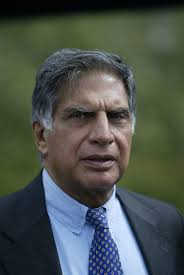Ratan Tata: The Visionary Leader of Indian Industry

Introduction
Ratan Tata, the former chairman of Tata Sons, is an iconic figure in India’s industrial landscape, known for his visionary leadership and commitment to philanthropy. His influence extends beyond business as he has played a pivotal role in shaping the socio-economic fabric of India. His decisions have not only revolutionized the Tata Group but have also set benchmarks for corporate governance and social responsibility in the country.
Career Highlights
Ratan Tata took over the helm of Tata Group in 1991 and transformed it into a global powerhouse. Some of his key accomplishments include the acquisition of key international brands such as Jaguar Land Rover and Corus Steel, which significantly enhanced the group’s international standing. Under his leadership, the Tata Group expanded its presence in sectors ranging from automobiles to IT and beyond, generating thousands of jobs and fostering innovation.
Tata is also known for his emphasis on ethical business practices. He has been a strong advocate for corporate governance, focusing on long-term sustainability rather than short-term profits. This approach has led to a stronger brand reputation for Tata companies, both domestically and abroad.
Philanthropic Efforts
Ratan Tata’s commitment to social causes is equally commendable. He has been instrumental in advancing various philanthropic initiatives through the Tata Trusts, which carry out initiatives in health, education, and rural development. Under his guidance, the Tata Trusts have contributed to several life-changing projects across the nation, including advancements in healthcare technology and educational reforms for underprivileged communities.
Current Influence and Future Outlook
Even after retiring from active service in 2012, Ratan Tata continues to serve as an inspiration for many entrepreneurs and business leaders. He remains involved with various startups and initiatives aimed at fostering innovation, particularly in technology and social enterprise. In recent interviews, he has voiced his concerns over the evolving landscape of corporate India and encouraged the next generation of leaders to embrace responsibility and ethical governance.
Conclusion
Ratan Tata’s enduring legacy is marked by his contributions to the Indian economy, ethical business practices, and unwavering commitment to social responsibility. As he continues to mentor and inspire emerging entrepreneurs, his influence will shape the future of Indian industry for years to come. For anyone looking to understand the essence of leadership, Ratan Tata’s life serves as a profound example of vision, integrity, and commitment to bettering society.









